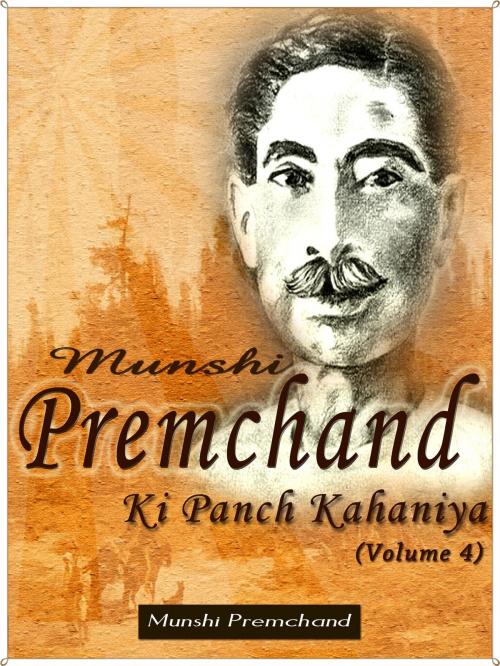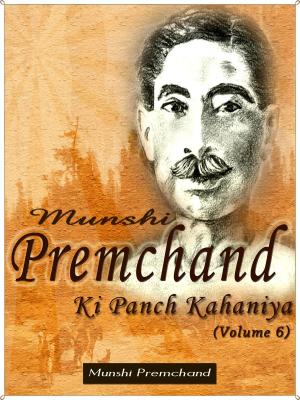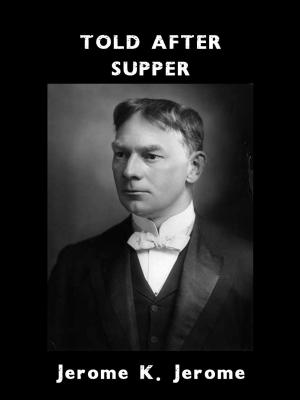Munshi Premchand Ki Panch Kahaniya, Volume 4
Fiction & Literature, Poetry, Inspirational & Religious| Author: | Munshi Premchand | ISBN: | 9781623940508 |
| Publisher: | AppsPublisher | Publication: | August 13, 2012 |
| Imprint: | Language: | English |
| Author: | Munshi Premchand |
| ISBN: | 9781623940508 |
| Publisher: | AppsPublisher |
| Publication: | August 13, 2012 |
| Imprint: | |
| Language: | English |
Munshi Premchand (1880-1936)
Premchand was the pen name adopted by the Hindi writer Dhanpatrai who was born on 31 July 1880 at Lamati near Varanasi. His early education was in a madarasa under a Maulavi, where he learnt Urdu. When he was studying in the ninth class he was married, much against his wishes. He was then fifteen. In 1919, while he was a teacher at Gorakhpur, he passed his B.A., with English, Persian and History. He had a second marriage with Shivarani Devi, a child-widow, who wrote a book on him, ‘Premchand Gharmein' after his death.
Premchand's literary career started as a freelancer in Urdu. In his early short stories he depicted the patriotic upsurge that was sweeping the land in the first decade of the present century. Soz-e-Watan, a collection of such stories published by Premchand in 1907, attracted the attention of the British government. In 1914, when Premchand switched over to Hindi, he had already established his reputation as a fiction writer in Urdu. Premchand was the first Hindi author to introduce realism in his writings. He pioneered the new art form – fiction with a social purpose. He wrote of the life around him and made his readers aware of the problems of the urban middle-class and the country’s villages and their problems. He supplemented Gandhiji’s work in the political and social fields by adopting his revolutionary ideas as themes for his literary writings.
Premchand was a prolific writer. He has left behind a dozen novels and nearly 250 short stories. Seva Sadan was his first novel. He believes in the principle: ‘hate the sin and not the sinner.’ His best known novels are Sevasadan, Rangamanch, Ghaban, Nirmala and Godan. Three of his novels have been made into films.
Besides being a great novelist, Premchand was also a social reformer and thinker. His greatness lies in the fact that his writings embody social purpose and social criticism rather than mere entertainment. Literature according to him is a powerful means of educating public opinion. He believed in social evolution and his ideal was equal opportunities for all.
Premchand died in 1936 and has since been studied both in India and abroad as one of the greatest writers of the century.
Munshi Premchand (1880-1936)
Premchand was the pen name adopted by the Hindi writer Dhanpatrai who was born on 31 July 1880 at Lamati near Varanasi. His early education was in a madarasa under a Maulavi, where he learnt Urdu. When he was studying in the ninth class he was married, much against his wishes. He was then fifteen. In 1919, while he was a teacher at Gorakhpur, he passed his B.A., with English, Persian and History. He had a second marriage with Shivarani Devi, a child-widow, who wrote a book on him, ‘Premchand Gharmein' after his death.
Premchand's literary career started as a freelancer in Urdu. In his early short stories he depicted the patriotic upsurge that was sweeping the land in the first decade of the present century. Soz-e-Watan, a collection of such stories published by Premchand in 1907, attracted the attention of the British government. In 1914, when Premchand switched over to Hindi, he had already established his reputation as a fiction writer in Urdu. Premchand was the first Hindi author to introduce realism in his writings. He pioneered the new art form – fiction with a social purpose. He wrote of the life around him and made his readers aware of the problems of the urban middle-class and the country’s villages and their problems. He supplemented Gandhiji’s work in the political and social fields by adopting his revolutionary ideas as themes for his literary writings.
Premchand was a prolific writer. He has left behind a dozen novels and nearly 250 short stories. Seva Sadan was his first novel. He believes in the principle: ‘hate the sin and not the sinner.’ His best known novels are Sevasadan, Rangamanch, Ghaban, Nirmala and Godan. Three of his novels have been made into films.
Besides being a great novelist, Premchand was also a social reformer and thinker. His greatness lies in the fact that his writings embody social purpose and social criticism rather than mere entertainment. Literature according to him is a powerful means of educating public opinion. He believed in social evolution and his ideal was equal opportunities for all.
Premchand died in 1936 and has since been studied both in India and abroad as one of the greatest writers of the century.















